 W
WMohamed Abdelaziz was the 3rd Secretary General of the Polisario Front, from 1976, and the 1st President of the Sahrawi Arab Democratic Republic from 1982, until his death in 2016.
 W
WIsaias Afwerki became the first President of Eritrea after the Eritrean War of Independence in 1993 and has remained in office ever since. He led the Eritrean People's Liberation Front (EPLF) to victory in May 1991, ending the 30-year-old war for independence from Ethiopia.
 W
WMohamed Irfaan Ali is a Guyanese politician who is the President of Guyana since August 2020. Ali is the first Muslim President of Guyana, along with being the second Muslim head of state in the Western Hemisphere after Noor Hassanali.
 W
WSalvador Guillermo Allende Gossens was a Chilean physician and socialist politician, who served as the 28th president of Chile from 3 November 1970 until his death on 11 September 1973. He was the first Marxist to be elected president in a liberal democracy in Latin America.
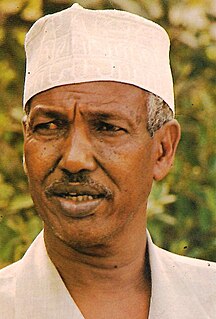 W
WHassan Gouled Aptidon was the first President of Djibouti from 1977 to 1999.
 W
WBao Youxiang, also known by his Wa name Tax Log Pang and his Burmese name Pau Yu Chang, is the current President of Wa State, general secretary of the United Wa State Party, and commander-in-chief of the United Wa State Army.
 W
WAhmed Ben Bella was an Algerian politician, socialist soldier and revolutionary who served as the first President of Algeria from 1963 to 1965.
 W
WBidya Devi Bhandari is a Nepalese politician, serving as the 2nd President of Nepal, in office since 28 October 2015. She is the first woman to hold the office in the country. She served as the vice-chairperson of the Communist Party of Nepal and was the chair of the All Nepal Women's Association before being elected president. She is accused of being supportive to Oli and CPN(UML) while in office.
 W
WHabib Bourguiba was a Tunisian lawyer, nationalist leader and statesman who led the country from 1956 to 1987 as Prime minister of the Kingdom of Tunisia (1956–57) then as the first President of Tunisia (1957–87). Prior to his presidency, he led the nation to independence from France, ending the 75-year-old protectorate and earning the title of "Supreme Combatant".
 W
WHugo Rafael Chávez Frías was a Venezuelan politician who was president of Venezuela from 1999 until his death in 2013, except for a brief period in April 2002. Chávez was also leader of the Fifth Republic Movement political party from its foundation in 1997 until 2007, when it merged with several other parties to form the United Socialist Party of Venezuela (PSUV), which he led until 2012.
 W
WRafael Vicente Correa Delgado, known as Rafael Correa, is an Ecuadorian politician and economist who served as President of Ecuador from 2007 to 2017. The leader of the PAIS Alliance political movement from its foundation until 2017, Correa is a democratic socialist and his administration focused on the implementation of left-wing policies. Internationally, he served as president pro tempore of the UNASUR.
 W
WUmaro Mokhtar Sissoco Embaló is the president of Guinea-Bissau. He is a political scientist and military officer who previously served as prime minister between 18 November 2016 and 16 January 2018.
 W
WMuammar Muhammad Abu Minyar al-Gaddafi, commonly known as Colonel Gaddafi, was a Libyan revolutionary, politician and political theorist. He governed Libya as Revolutionary Chairman of the Libyan Arab Republic from 1969 to 1977 and then as the "Brotherly Leader" of the Great Socialist People's Libyan Arab Jamahiriya from 1977 to 2011. He was initially ideologically committed to Arab nationalism and Arab socialism but later ruled according to his own Third International Theory.
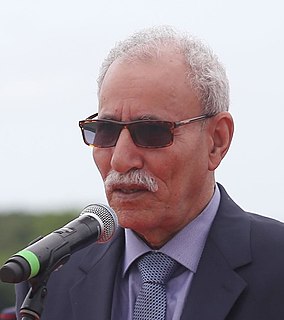 W
WBrahim Ghali is a Sahrawi politician and military man and is the current president of the Sahrawi Arab Democratic Republic (SADR) and former SADR Ambassador to Algeria. Ghali has served as a historic figure and played a key role in the struggle of the Sahrawi people for self-determination and independence from Morocco. He was instrumental in the creation of the Movement for the Liberation of the Saguia el Hamra and Wadi el Dhahab, the 1970 Zemla Intifada against Spanish rule, the foundation of the Popular Front for the Liberation of Saguia el-Hamra and Río de Oro in 1973, and the Sahrawi Republic in 1976. He also played a major role in the Western Sahara War and establishment of MINURSO, the UN peacekeeping mission for the Western Sahara.
 W
WKenneth David Kaunda, also known as KK, was a Zambian politician who served as the first president of Zambia from 1964 to 1991. He was at the forefront of the struggle for independence from British rule. Dissatisfied with Harry Nkumbula's leadership of the Northern Rhodesian African National Congress, he broke away and founded the Zambian African National Congress, later becoming the head of the United National Independence Party (UNIP). He was the first president of the independent Zambia. In 1973 following tribal and inter-party violence, all political parties except UNIP were banned through an amendment of the constitution after the signing of the Choma Declaration. At the same time, Kaunda oversaw the acquisition of majority stakes in key foreign-owned companies. The 1973 oil crisis and a slump in export revenues put Zambia in a state of economic crisis. International pressure forced Kaunda to change the rules that had kept him in power. Multi-party elections took place in 1991, in which Frederick Chiluba, the leader of the Movement for Multi-Party Democracy, ousted Kaunda.
 W
WNicolás Maduro Moros is a Venezuelan politician and president of Venezuela since 2013, with his presidency under dispute since 2019.
 W
WFrancisco Mendes, nom de guerre Chico Té, was a Bissau-Guinean politician. He was the country's first Prime Minister and held that position from September 24, 1973 until his fatal car accident under suspicious circumstances on July 7, 1978.
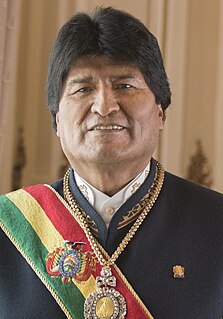 W
WJuan Evo Morales Ayma is a Bolivian politician, trade union organizer, and former cocalero activist who served as the 65th President of Bolivia from 2006 to 2019. Widely regarded as the country's first president to come from its indigenous population, his administration focused on the implementation of leftist policies and combating the influence of the United States and multinational corporations. Ideologically a socialist, he has led the Movement for Socialism (MAS) party since 1998.
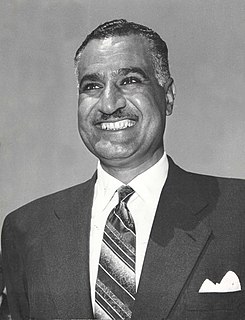 W
WGamal Abdel Nasser Hussein was an Egyptian revolutionary, and, along with Mohamed Naguib, one of the two principal leaders of the Egyptian Revolution of 1952 that toppled the monarchy of Egypt and Sudan, ended the United Kingdom's occupation of Egypt, and introduced wholesale agrarian reform. An advocate of rapid, radical political and economic change, Nasser replaced the more gradualist Naguib in 1954 before becoming the second President of Egypt in 1956, beginning a new period of modernisation, and socialist reform in Egypt, together with a profound advancement of pan-Arabism, and support for anti-imperialism and decolonisation across the Third World.
 W
WNe Win was a Burmese politician and military commander who served as Prime Minister of Burma from 1958 to 1960 and 1962 to 1974, and also President of Burma from 1962 to 1981. Ne Win was Burma's military dictator during the Socialist Burma period of 1962 to 1988.
 W
WJaafar Muhammad an-Nimeiry was a Sudanese politician who served as the President of Sudan from 1969 to 1985.
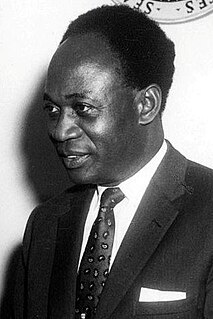 W
WKwame Nkrumah was a Ghanaian politician, political theorist, and revolutionary. He was the first Prime Minister and President of Ghana, having led the Gold Coast to independence from Britain in 1957. An influential advocate of Pan-Africanism, Nkrumah was a founding member of the Organization of African Unity and winner of the Lenin Peace Prize from the Soviet Union in 1962.
 W
WJosé Daniel Ortega Saavedra is a Nicaraguan politician serving as President of Nicaragua since 2007; previously he was leader of Nicaragua from 1979 to 1990, first as Coordinator of the Junta of National Reconstruction (1979–1985) and then as President (1985–1990). A leader in the Sandinista National Liberation Front, he implemented policies to achieve leftist reforms across Nicaragua. In later years, Ortega's previously far left politics moderated more and more, pursuing pro-business policies and even rapprochement with the Catholic Church, with the adoption of strong anti-abortion policies by his government in the 2000s, and adoption of strong religious rhetoric by the previously atheist Ortega. After the retirement of Fidel Castro in 2008, Ortega is currently one of the longest non-royal rulers in the world and the longest serving non-royal leader in the Americas.
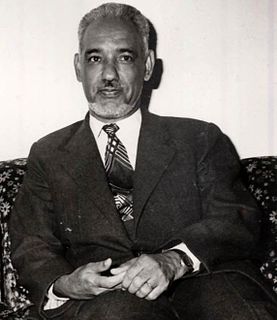 W
WMoktar Ould Daddah was the President of Mauritania from 1960, when his country gained its independence from France, to 1978, when he was deposed in a military coup d'etat.
 W
WDidier Ignace Ratsiraka was a Malagasy politician and naval officer who was President of Madagascar from 1975 to 1993 and from 1997 to 2002. At the time of his death, he was the longest-serving President of Madagascar.
 W
WFrance-Albert René was a Seychellois politician who served as the second President of Seychelles from 1977 to 2004. He was nicknamed by Seychellois government officials and fellow party members as "the Boss". His name is often given as simply Albert René or F.A. René; he was also nicknamed Ti France.
 W
WEl-Ouali Mustapha Sayed was a Sahrawi nationalist leader, co-founder and second Secretary-General of the Polisario Front.
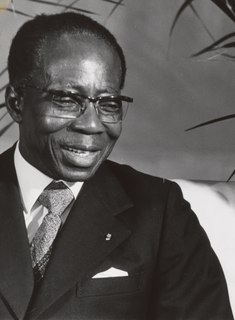 W
WLéopold Sédar Senghor was a Senegalese poet, politician and cultural theorist who, for two decades, served as the first president of Senegal (1960–80). Ideologically an African socialist, he was the major theoretician of Négritude. Senghor was also the founder of the Senegalese Democratic Bloc party.Senghor was the first African elected as a member of the Académie française. He won the 1985 International Nonino Prize in Italy. He is regarded by many as one of the most important African intellectuals of the 20th century.
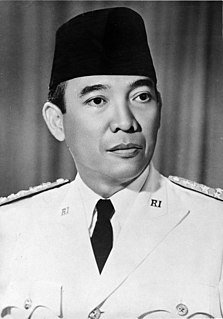 W
WSukarno was an Indonesian statesman, politician, nationalist and revolutionary who was the first president of Indonesia, serving from 1945 to 1967.
 W
WAhmed Sékou Touré was a Guinean political leader and African statesman who became the first president of Guinea, serving from 1958 until his death in 1984. Touré was among the primary Guinean nationalists involved in gaining independence of the country from France.
 W
WMoussa Traoré was a Malian soldier, politician, and dictator who was President of Mali from 1968 to 1991. As a Lieutenant, he led the military ousting of President Modibo Keïta in 1968. Thereafter he served as head of state until March 1991, when he was overthrown by popular protests and a military coup. He was twice condemned to death in the 1990s, but eventually pardoned on both occasions and freed in 2002. He retired from public life and died in 2020.